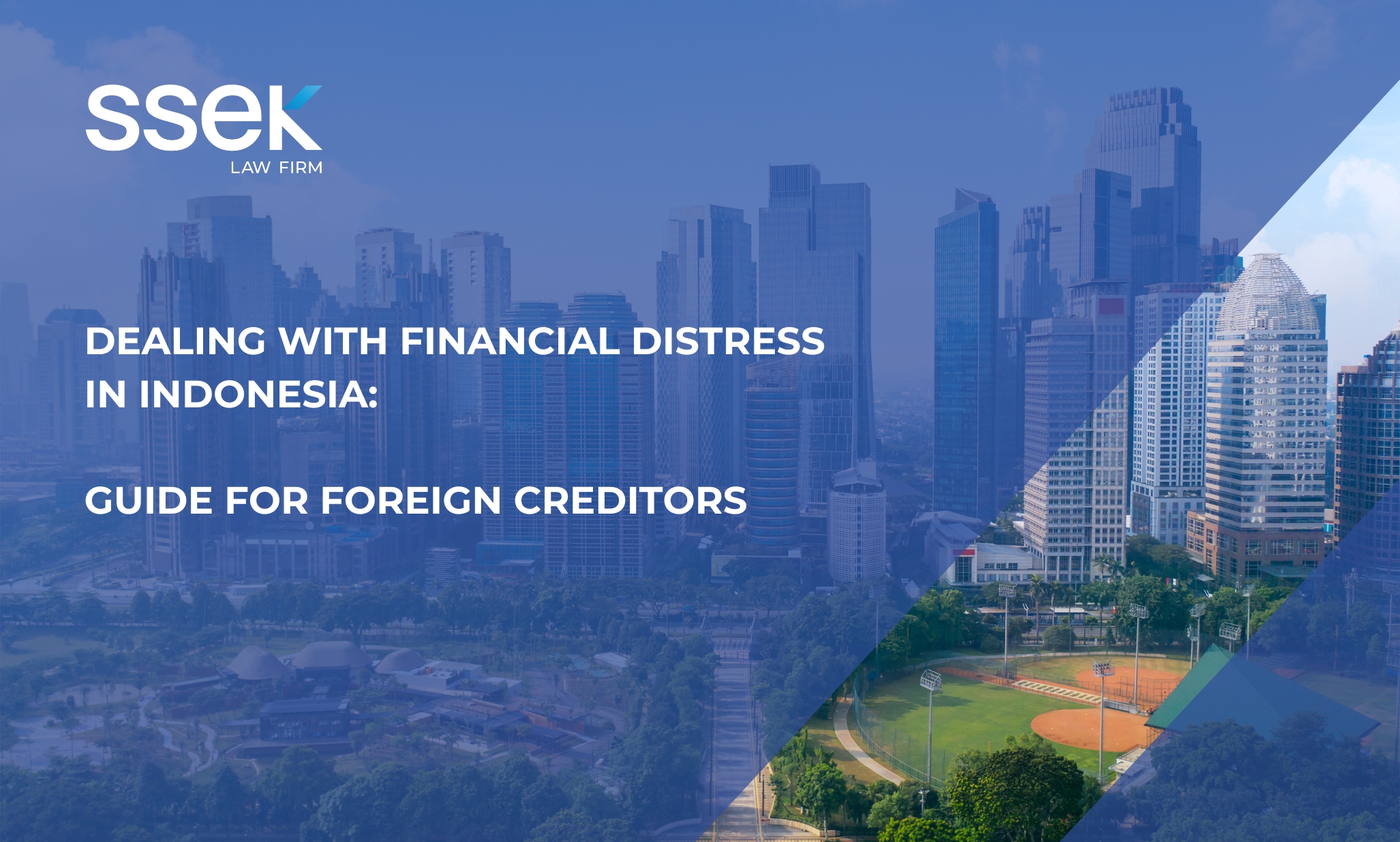

The Indonesian Government has taken several measures to respond to the COVID-19 pandemic. The main measure was the enactment of Government Regulation in lieu of Law No. 1 of 2020 regarding the State\'s Finance Policy and Financial Stability to Manage COVID-19 and/or in the Framework of Averting Threats to the National Economy and/or Financial System Stability (\"Perppu 1/2020”); Government Regulation No. 21 of 2020 regarding Large-Scale Social Distancing for the Acceleration of Handling Corona Virus Disease 2019 (COVID-19) (\"GR 21”); and Presidential Decree No. 11 of 2020 regarding Pronouncement of a Public Health Emergency Due to Corona Virus Disease 2019 (COVID-19).
These regulations provide the general policy of the Government in response to COVID-19, general guidance on social distancing and confer certain powers on specified government officials during the public health emergency.
Article 5 of GR 21 states that if the Minister of Health (MOH) enacts large-scale social restrictions (Pembatasan Sosial Berskala Besar or PSBB), regional governments are required to implement the provisions under Law No. 6 of 2018 regarding Health Quarantine.
On April 3, 2020, the MOH issued MOH Regulation No. 9 of 2020 regarding Guidelines on Large-Scale Social Restrictions in the Framework of Accelerating the Handling of Corona Virus Disease 2019 (COVID-19) (\"MOH Regulation 9/2020”). Article 3 of MOH Regulation 9/2020 provides that the MOH shall stipulate PSBB in a region based on a request from the relevant governor/regent/mayor or a proposal from the head of the Taskforce for the Acceleration of COVID-19 Handling.
In regions where PSBB is implemented, Article 13 of MOH Regulation 9/2020 states that such implementation shall consist of the temporary closure of schools and workplaces, limitations on religious activities, limitations on activities in public places or facilities, limitations on social and cultural activities, limitations on means of transportation, and limitations on other activities that relate explicitly to defense and security.
PSBB
Once a region is granted PSBB it must comply with the restrictions contemplated in MOH Regulation 9/2020. The relevant governor/regent/mayor shall issue a regulation containing the requirements to implement PSBB in their region. Several regions in Indonesia have implemented PSBB, among including Jakarta, Banten, South Tangerang and Surabaya. Due to the social restrictions, many companies have introduced work from home policies.
However, we note that certain businesses that provide services involving the public interest are exempted from workplace closure. Such businesses include those in the healthcare, food and beverage, energy, communications, banking and finance, logistics, and strategic business sectors that are crucial to fulfilling people\'s daily needs.
Companies that remain open must follow established COVID-19 workplace protocols set by the government, which include restricting interactions, denying workplace access to people with underlying health conditions that could make them more vulnerable to COVID-19, ensuring the cleanliness and hygiene of the workplace, providing necessary healthcare protections, ensuring physical distancing between people of at least one meter, and specifically for restaurants, providing only takeaway or online order/delivery services.
Conducting Corporate Governance
The above restrictions affect how companies conduct corporate governance, in particular for publicly listed companies. During the pandemic, the Financial Services Authority (Otoritas Jasa Keuangan or OJK) issued OJK Regulation No. 15/ POJK.05/2020 regarding the Planning and Holding of General Meeting of Shareholders of Public Companies, dated 21 April 2020 (\"OJK Regulation 15/2020”), and OJK Regulation No. 16/POJK.04/2020 of 2020 regarding Implementation of Electronic General Meeting of Shareholders of Public Companies, dated the same (\"OJK Regulation 16/2020”).
Essentially, OJK Regulation 15/2020 and OJK Regulation 16/2020 introduce the Electronical GMS Implementing System or e-GMS. E-GMS is a system or electronic medium that can be used to support the holding and reporting of GMS of public companies.
Electronic General Meeting of Shareholders
Article 4 of OJK Regulation 16/2020 states that an electronic GMS can be held using the e-GMS of an e-GMS provider or an electronic system provided by the public company. E-GMS providers are the Depository and Settlement Agency (Lembaga Penyimpanan dan Penyelesaian), which has been appointed by the OJK, or other parties approved by the OJK. In conducting an electronic GMS, the e-GMS provider or the public company must be connected to the Depository and Settlement Agency and the securities administration bureau (biro administrasi efek) to ensure that shareholders who are entitled can attend the GMS.
A public company must include information that the GMS will be conducted electronically in the notice of GMS agenda to the OJK, the GMS announcement and the GMS summons. In conducting an electronic GMS, the public company must have at least the chairman of the GMS, one member of the Board of Directors (BOD) and/or one member of the Board of Commissioners (BOC), and capital market supporting professionals who will assist in the implementation of the GMS be physically present for the GMS.
Article 11 of OJK Regulation 16/2020 stipulates that voting in an electronic GMS can be done from any time after the GMS summons is issued to shareholders until the opening of each item on the meeting agenda that requires voting during the GMS. The e-GMS provider is obliged to conceal the votes that have been cast until the final votes are counted. Shareholders who vote electronically before the electronic GMS is held can still attend the GMS.
This first appeared in the Chambers Corporate Governance 2020 global guide, published by Chambers and Partners. You can find the full chapter at https://practiceguides.chambers.com/practice-guides/corporate-governance-2020/indonesia.
This publication is intended for informational purposes only and does not constitute legal advice. Any reliance on the material contained herein is at the user\'s own risk. All SSEK publications are copyrighted and may not be reproduced without the express written consent of SSEK.









